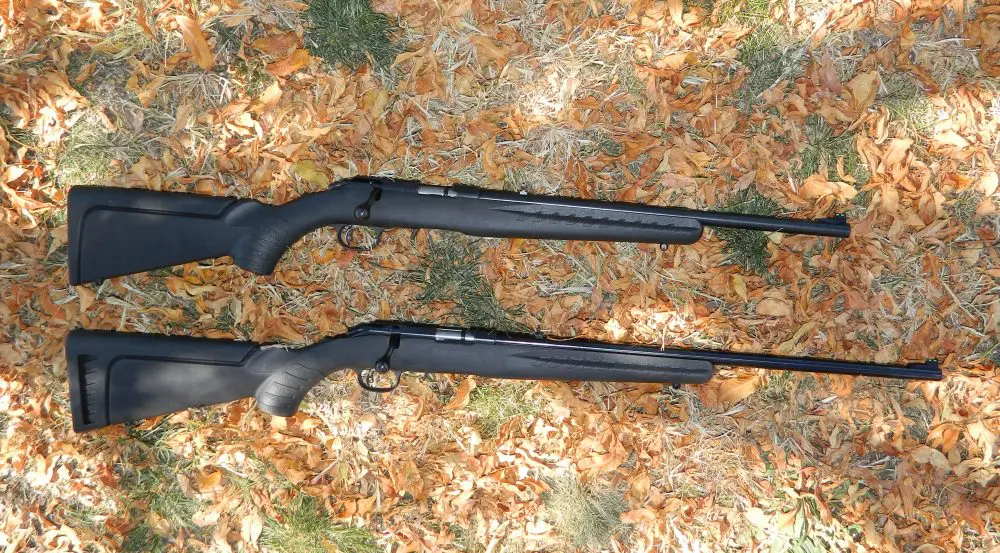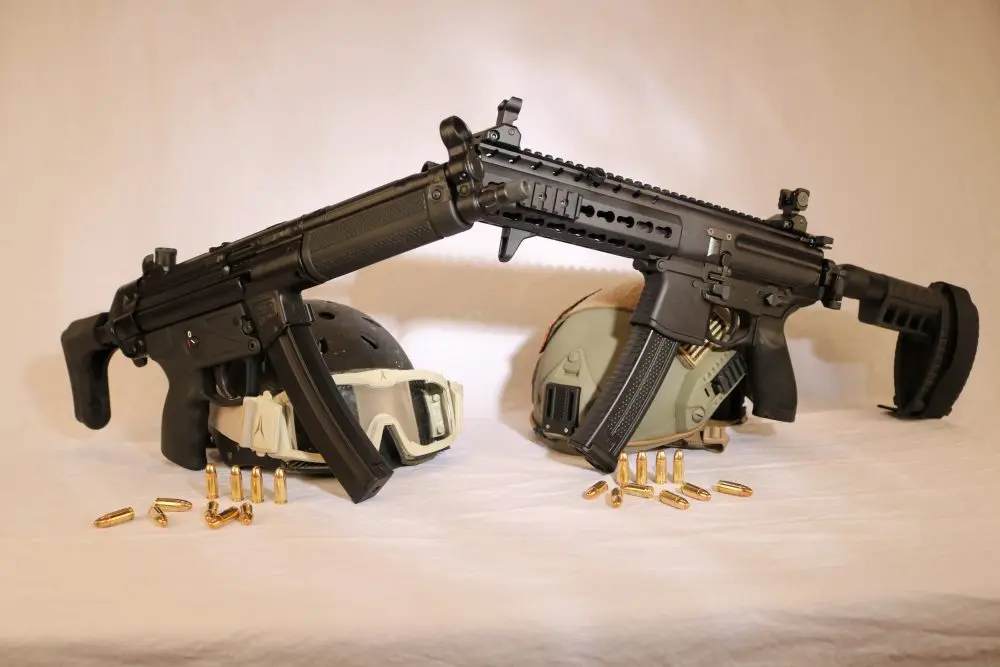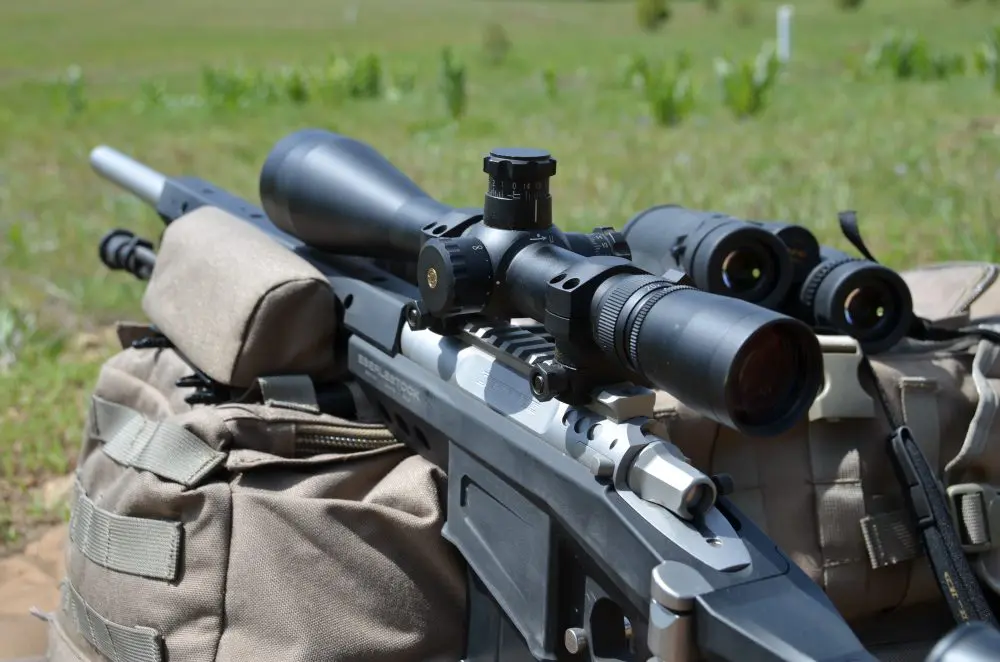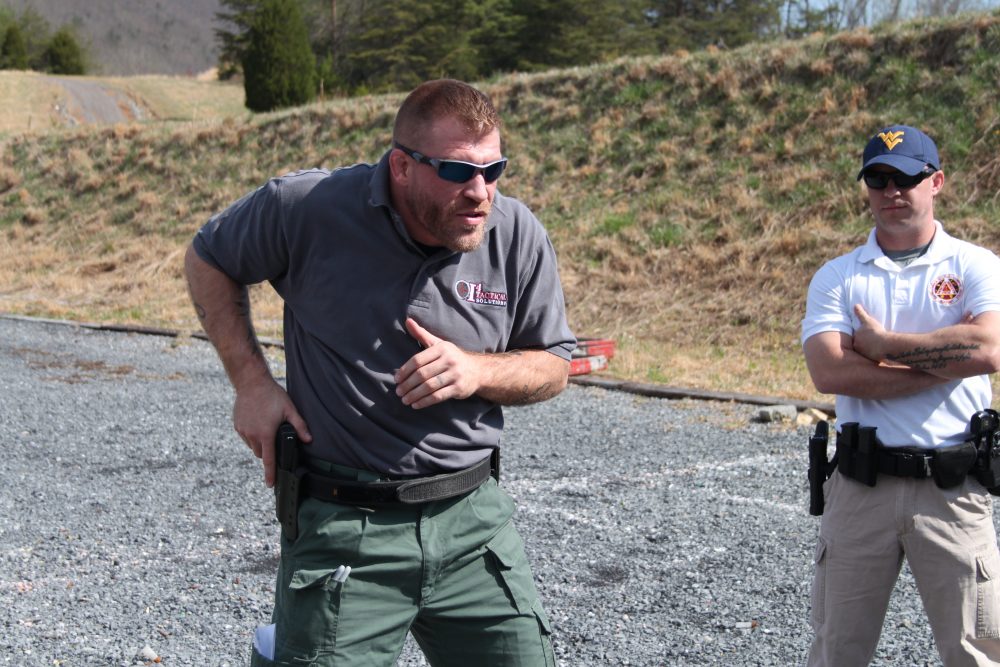Have you ever found yourself thinking about tree-dwelling rodents or exterior latex paint in the immediate aftermath of a gunfight?
It seems certifiably crazy, but having these types of strange, intrusive thoughts during times of crisis is such a prevalent phenomenon that I’m going to expend my monthly allotment of fresh Grade A Pontification to discuss the problem.
Consider the typical scenario: what had been a car chase, gun battle or serious threat thereof has suddenly and unexpectedly gone static. Now a herd of overstimulated people are holding in place, sweating, emotionally jacked up and ready to fight. The air is so thick with tension that you could cut it with a cheese slicer, and any bystander with half a brain is running for cover.
The seconds tick by as everyone is waiting for something to happen. After a few more moments, you have a sudden thought: “Oh, look, a squirrel. I love squirrels…”
BLAM!!
Your lifetime memberships are now cancelled because you experienced a loss of mental focus during a brief operational pause, a problem more technically known as “Cognitive Drift.”
I recently heard that term used in regard to medical errors in hospital emergency rooms. As computers are now ubiquitous to medicine, it has been claimed that for every second between clicking a computer mouse and something happening on the screen, there is an ever-increasing likelihood of medical error by the user. The doctor using the computer probably isn’t stupid or careless, it’s just that his or her overtaxed and highly stressed mind fills the sudden unwanted pause with extraneous mental noise. This momentary distraction is what leads to errors.
Once I heard the concept explained, I realized that I’ve seen the same thing during tactical incidents.
It seems counterintuitive that someone would mentally drift off during a serious crisis, but the circumstances are very similar: a high-stress, life-or-death incident brought to a sudden temporary halt. In these instances, the average human will stay focused for a short period of time, but eventually, cognitive drift starts to occur. While you’re waiting for the barricaded suspect to make his next move, there’s a good chance that at some point you’ll think about what color to paint the garage.
In this case, after the primary tension-building phase of the initial approach, our Guest of Honor has retreated somewhere to mull over his next action. You now find yourself standing around (hopefully behind cover) while waiting for his not-too-sharp mental processes to do something, anything, to conclude the festivities. After a few moments of this inactivity, it wouldn’t be uncommon to start thinking about whether to purchase a contrasting color for the garage door.
Cognitive drift often comes into play when someone is assigned to hold a perimeter. After the initial excitement of deployment, boredom sets in like a heavy fog, and we mentally drift off to everywhere except reality.
Several years ago, I learned that a good way to fight these mental lapses is to hear the suspect, after his capture a week later, give a detailed description of my image over his rifle sights. I am still on the sunny side of the grass because in that particular instance, the hidden kidnapper/rapist wisely realized he would have been promptly perforated by other nearby officers if he had fired.
I’ve also found that cognitive drift is contagious.
In one well-remembered incident, Yours Truly and a couple of other sniper teams had staked out the house of a murder suspect to wait for an opportune time to arrest him away from his fortified and heavily armed residence. The incident started out as usual, with everyone laser-focused on the job at hand, until the realization set in that it could be hours before anything happened. Initially, the sniper teams didn’t have much trouble staying alert due to two large dogs roaming the forested property. The prospect of imminent fang-to-knife combat is wonderful for maintaining concentration.
The entry team, however, was safely hidden just down the road in vehicles. As the outside temperature continued to drop below freezing and men became hypothermic, the sniper teams began discussing a rehabilitation rotation to keep people fresh during the wait. Upon hearing this, in a complete breakdown of radio discipline, the entry team began commenting on the excessive warmth inside their comfortable vehicles and the overabundance of fresh cheeseburgers that had been delivered.
The suspect was captured a few hours later without incident, but by that time, the snipers were demoralized and had completely lost interest in the proceedings. Fortunately, the bad guy didn’t do anything interesting.
Unfortunately, attentiveness is not usually contagious. During an incident, you might remain steadfast and eagle-eyed toward the threat, but if things go on long enough, don’t be too surprised if a dice game breaks out behind you. The best you can do is take care of yourself, so perhaps you can take care of your less-focused buddies.
The best and simplest cure for the problem of cognitive drift is to be aware of this natural human tendency, then constantly remind yourself that the problem can be rectified by unexpected bullet holes in the chest cavity. Aside from that pleasant thought, start mentally running through all the possibilities of the current scenario. This is called the “What-if game,” and we frequently use it as a learning tool after an incident has been concluded. However, it also works wonders to prevent loss of focus during a situation.
While waiting, seriously contemplate what will happen if the suspect unexpectedly fires upon you, attempts to flee, or performs one of the other million foreseeable actions. Stop and ask yourself, “Where will I go, what will I do, and what happens after that?”
If you consistently engage in this type of internal discussion, it will be unlikely that you’ll find yourself idly speculating on the foundation garment configuration of the cute new female paramedic rather than on the guy out there who would like to kill you.
I’m now going to save this document one more time before making a final important point:
Um…what were we talking about?





